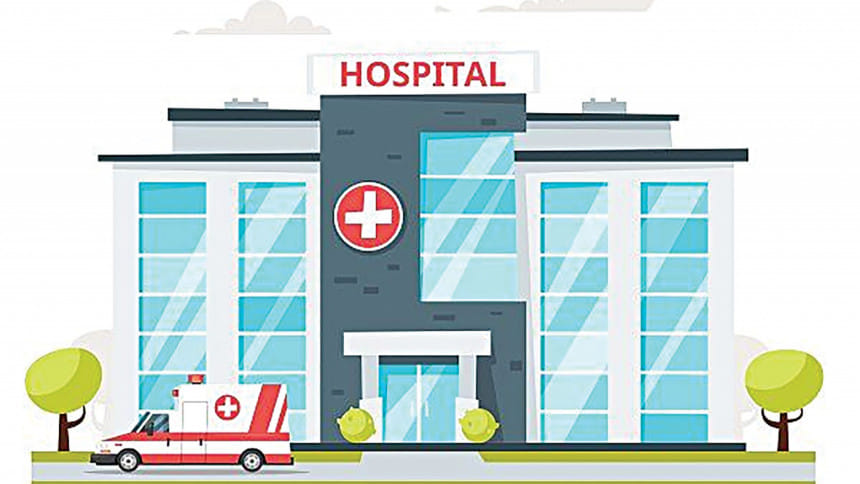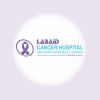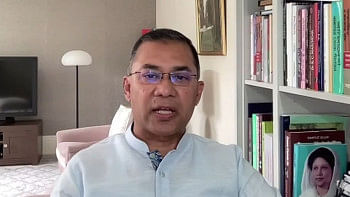Private hospitals look to make a turnaround in 2021

Samorita Hospital, the lone listed healthcare provider, yesterday reported a sharp drop in profit for the last fiscal year, reflecting the sluggish business in the country's private healthcare sector as most treatment-seekers opted to stay away from hospitals.
The private hospital said its net profit dipped 90 per cent to Tk 32.5 lakh in the financial year ending in June 2020 from Tk 3.22 crore in the previous year.
Samorita blamed the coronavirus disease, which was reported first in early March, for the revenue drop, a view that was echoed by two top officials of the country's well-known Square Hospital and Labaid Specialised Hospital.
"The Covid-19 has eaten up our income from March to June," said Samorita Hospital Managing Director ABM Haroon.
"How will patients come to Dhaka from districts as buses were off the road? For the first time in 22 years, we could not declare any dividend for our shareholders," he said.
He said the hospital had good business in the first eight months of the last fiscal year. Its income and profit dropped also because of increased expenditure for doctors, technicians and other healthcare workers and setting up of facilities for the treatment of Covid patients.
Md Shariful Islam, company secretary of Samorita Hospital, said the number of patients arriving every day from April to June came down to 10-12.
Haroon, also the senior vice president of the Bangladesh Private Clinic and Diagnostic Owner's Association (BPCDOA), said except for a few large private hospitals that offer multidisciplinary treatment, all had sluggish business from March to August.
"The healthcare sector's business had been totally down during the April-June period due to the lockdown," said Md EE Yousuf Siddique, chief administrative officer of Square Hospitals.
"Our revenue plunged to less than one-third during that time. Patients did not visit hospital except for emergency," he said.
"Referrals also dropped. Business had been really bad at that time," he said, adding that the number of outpatients dropped to 250 daily in the April-June period from the previous daily average of 1,200.
The number of in-patients slumped to nearly one-third during that time from a daily average of 300 previously.
"We had to face a lot of troubles. On the one hand, our income dropped. On the other hand, our expenditure increased for providing equipment to doctors and nurses, providing allowance and creating accommodation for healthcare providers. Overall, we had a bad time," he said.
"The situation for almost all other hospitals had been bad," Siddique said.
This was the first time the country's private healthcare sector, which had seen a burgeoning growth since the 1990s, suffered a blow.
Buoyed by the government's patronisation and the growing income and health consciousness among the people, nearly 15,000 private hospitals, clinics and diagnostic facilities emerged in the medical care landscape over the last three decades to cater to growing demand.
No official estimate of the industry's annual turnover is available.
However, AM Shamim, managing director of Labaid Group, one of the biggest private sector healthcare providers, earlier said the annual turnover would be $6 billion and the sector was growing at 25 per cent annually until the pandemic hit the country.
Today, private hospitals and clinics have 91,500 beds, which are nearly double that in public hospitals, said the Health Bulletin 2019.
In 2007, the number of private clinics and hospitals was 1,000, and they had 16,000 beds, just half the total beds in the public sector hospitals, showed official data.
Yesterday Shamim said industry turnover slumped roughly 35 per cent during the March-July period as doctors did not sit in the outpatient sections and patients preferred staying home instead of visiting hospitals.
"We saw a sharp fall in both outdoor and inpatients," he said.
However, things started returning to the pre-Covid period since September. "We have started seeing a peak after September," said Yousuf.
Shamim said the industry was likely to grow by 20 per cent next year as the Covid-19 also opened up opportunities for the private medical service providers to show their capacity, especially to those well-off people who used to travel abroad for treatment.
"We have been able to win the confidence of many," said Yousuf.
Haroon said the pandemic halted the growth of the sector. "We will recover fully unless the second wave of the pandemic hits us," he said.
Executives of the three hospitals said the sector has started rebounding since September and they expect the next year will be good one.


 For all latest news, follow The Daily Star's Google News channel.
For all latest news, follow The Daily Star's Google News channel. 








Comments